How to be mozzie safe in the Outback
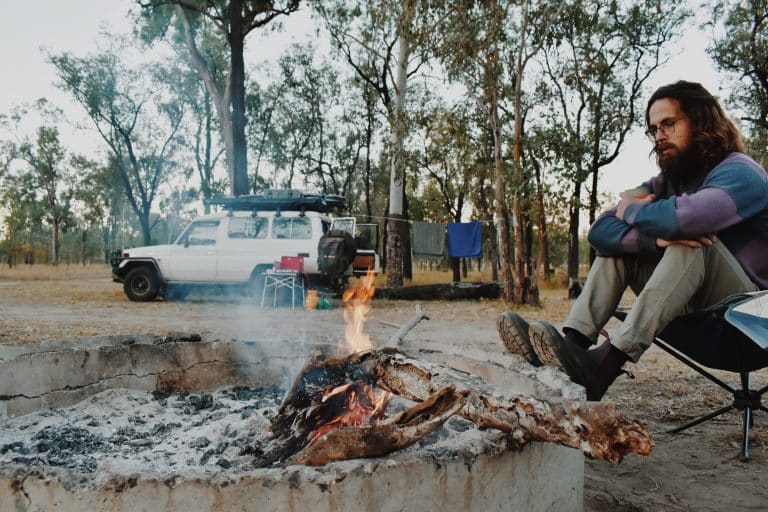



There’s nothing worse than sitting out by the campfire, watching the sunset and realising you’ve been the victim of a mozzie attack. Or trying to fall asleep while the incessant buzzing of a single mozzie keeps you awake. Naturally you can never see it when you turn on the head torch!
The problem with mozzies is that they don’t just give you an itchy bite that lasts for days, they also carry some pretty serious diseases. In Australia, some common mosquito-borne viruses are Barmah Forest, Ross River, Dengue and Murray Valley encephalitis. As well as some cases of rarer viruses. There are no vaccinations for these viruses, so the best way to prevent infection is by avoiding being bitten in the first place.
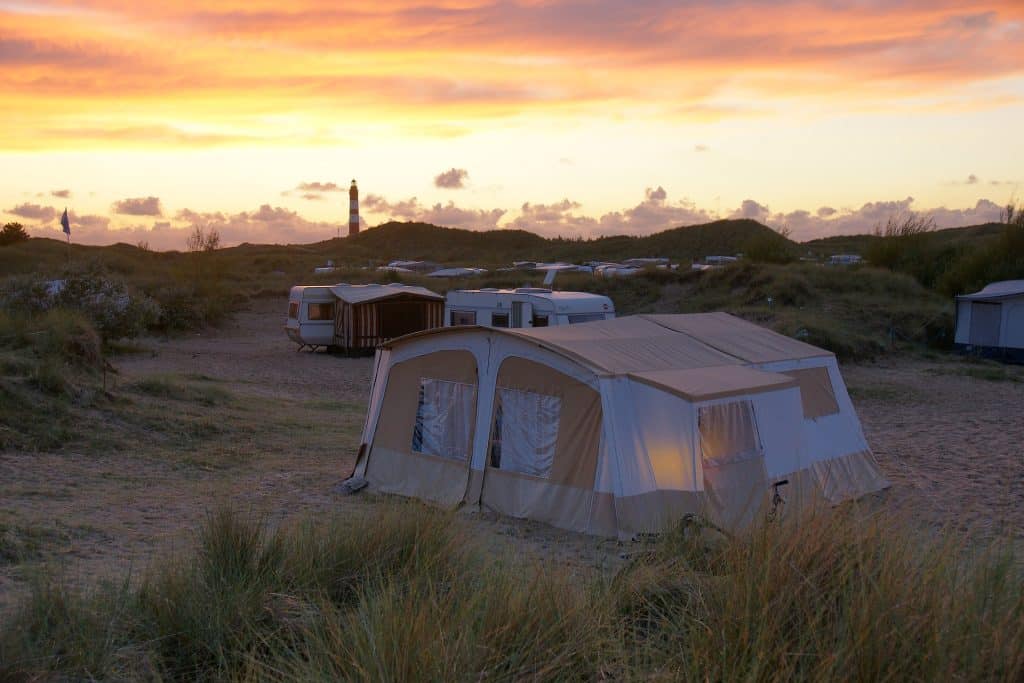
Dawn and dusk are when mosquitoes are the most active. When you’re camping, it’s often not practical to avoid being outside during these times. You’ll often be out watching the sunset or sunrise, lighting the campfire or cooking dinner. And let’s be honest, this is often the nicest time of day to be out and about in nature. What you can do is keep an eye on the time and be particularly vigilant with other preventative measures during this time. It’s important to remember that although this is the time when mozzies are most active, they will still bite during the day. Particularly if you’re somewhere with lots of moisture like beside a creek or in a rainforest.
Opt for clothing that covers your arms and legs and hangs reasonably loose. Tight shorts and leggings might cover your skin, but mozzies can actually bite through the close-fitting fabric. Mozzies are often more active in warmer months and loose clothing will also help keep you cool and avoid sunburn.
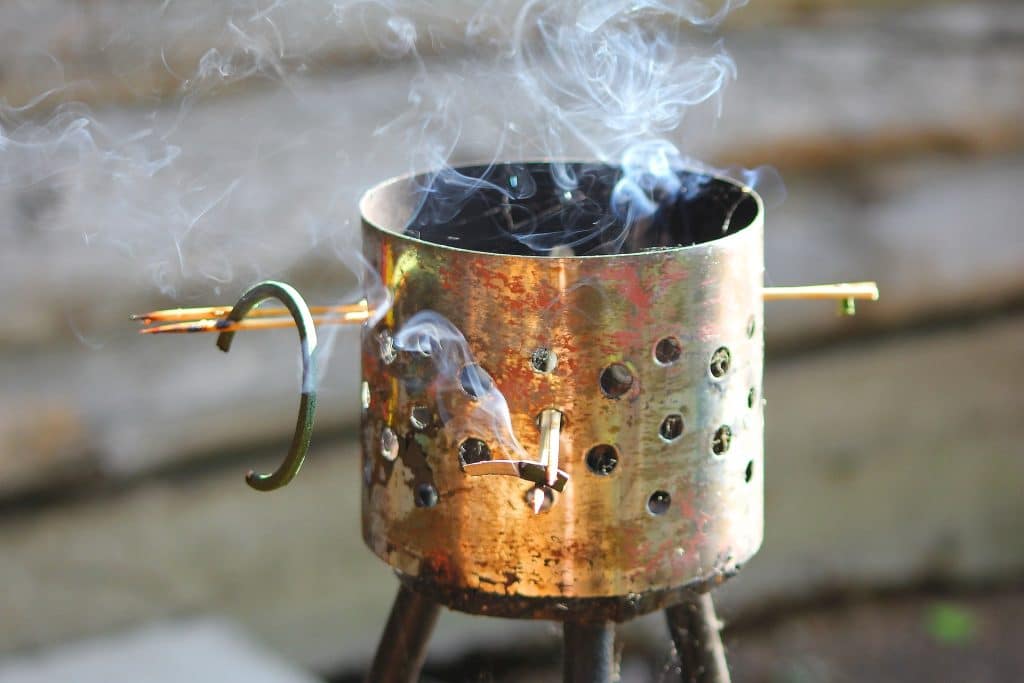
For the parts you can’t cover with clothes like wrists, ankles and neck, use a spray on or rub on mosquito repellant. While there are plenty of options out there, and anything is better than nothing, the most effective repellants contain DEET or Picaridin. And don’t forget to re-apply! If you have a spray, you can also spray some onto your clothes for extra protection.
Babies and toddlers are particularly vulnerable to mozzie-borne viruses. It’s safe to use repellant with up to 10% DEET for babies older than 2 months, but take care not to put it near their eyes, mouth or hands.
Whether you’re camping or staying in other accommodation will depend on how you net your sleeping area. If you’re in a tent, make sure all screen doors are closed after entering and leaving, and there are no big holes in the mesh. If you’re camping in a car, camper or caravan, invest in a screen for your access point. Again keep it closed and make sure it doesn’t get any holes. If you’re staying in a hotel, hostel, house or Airbnb, take your own mosquito net that can be hung over your bed. Even if it’s indoors, you can never be sure that your room is mozzie-proof. And no one wants to be kept up at night by that buzzing noise.
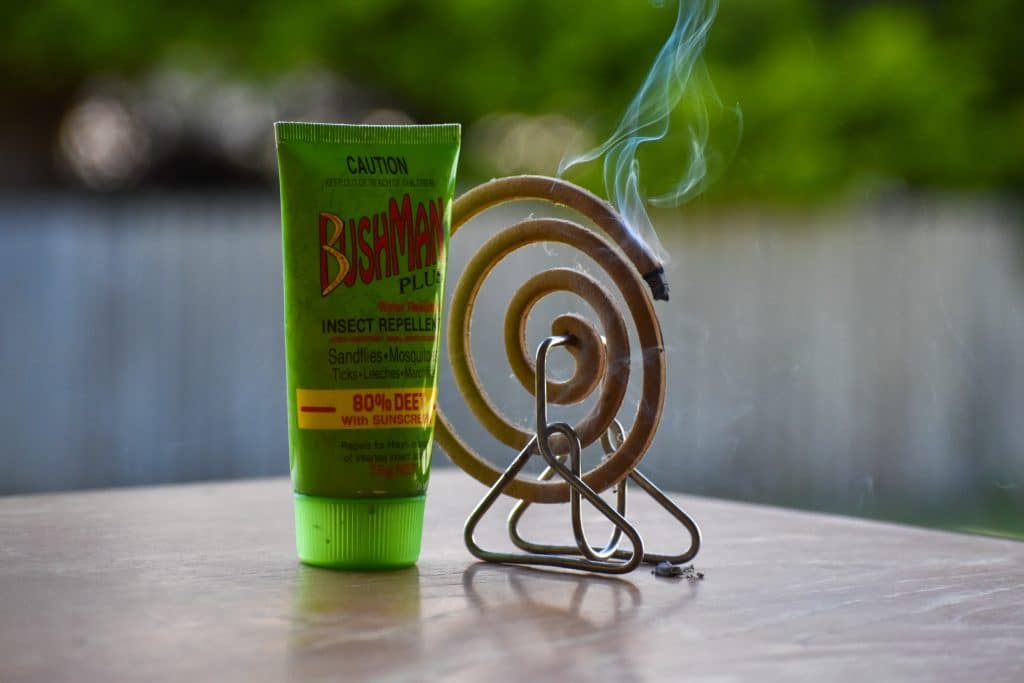
Mozzie coils or sticks work in a similar way to incense and slowly burn down, creating a repellent smoke. While they shouldn’t necessary be relied upon for full prevention, they’re a great way to ward off mozzies from a wider area. Set them up nearby door entrances, under your cooking area, or even evenly spaced in a circle around your common area. You can even waft some of the smoke inside your sleeping area before you close it off with a net. Some people don’t like the smell but they aren’t harmful, so shop around to find one that you don’t mind. Keep in mind the effectiveness is reduced in higher winds and these are a burning material so should be placed well away from anything flammable like gas or dry leaves.
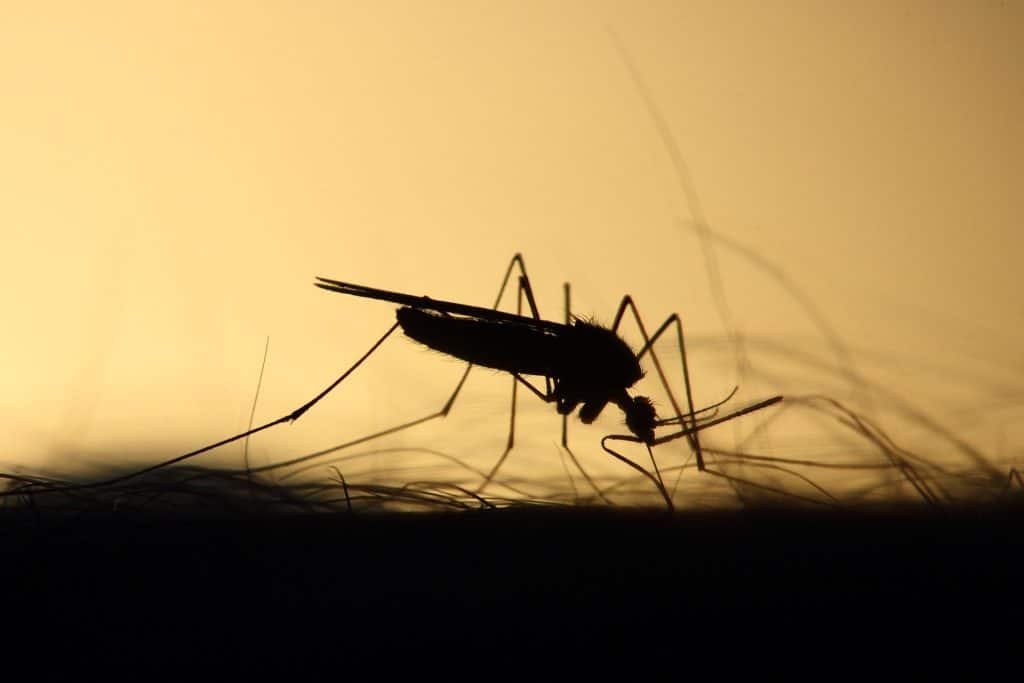
Mosquito-borne diseases often have similar symptoms.
These include: fever, severe headaches, muscle and joint pain, extreme fatigue, nausea, vomiting, diarrhoea, rashes and bleeding from nose or gums.
If you start to experience any combination of these symptoms you should seek immediate medical help.
Mosquitoes kill more people every year than any other animal worldwide, so let’s keep safe by preventing mozzie bites, and remember our outback camping trips for all the right reasons. Safe camping!